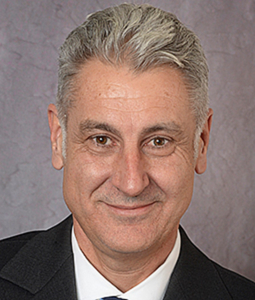Statistical & Data Management Core
What We Do
As a key research facility in the USC Research Center for Child Well-Being, the Statistical & Data Management (SDM) Core engages in the full spectrum of design, data, statistical, and analytic activities associated with implementation of research projects. The SDM Core includes seasoned data management and programming staff, and accomplished statisticians who are experienced in multidisciplinary collaborations in many areas of prevention and intervention research, public health, psychometrics, and data science.
Core Goals
(1) To provide high-quality support to RCCWB investigators regarding the planning and execution of research projects with respect to both data management and statistical analyses.
(2) To foster high-quality application of state-of-the-science statistical methods for multi-level data, causal inference, survival analysis, Bayesian methods, missing data, measurement error, clinical/prevention trials, structural equation modeling, and high-dimensional inference.
(3) To guide RCCWB investigators with respect to the development of cogent analytic plans in extramural research grant applications.
(4) To develop greater capacity for providing data and statistical services that add to the University’s infrastructure
Core Services
Data Management Support
- Codebook creation and refinement
- Database development and management
- Data entry or capture
- Documentation for indexing, data, and metadata
- Interface with data repository
Expert Consultation
- Research design
- Power estimates and issues
- Analytic planning
- Handling of missing data
- Results sections in publications
Implementation & Application
- Analytic programming
- Primary, secondary, and exploratory statistical analyses
- Collaboration on presentations and publications
Who We Are
Alexander McLain
Alexander C. McLain, PhD is the Director of the SDM Core and an Associate Professor in the Department of Epidemiology and Biostatistics. Dr. McLain is a generalist who specializes developing innovative approaches for statistical modeling of high-dimensional, functional, longitudinal, clustered, and survival data, along with statistical methods for measurement error and missing data. Some of his current methods research focuses on Bayesian approaches to fit linear mixed models when the number of predictor variables is much larger than the sample size. He has been funded as PI by the NIH, CDC, and the Bill and Melinda Gates foundation. Dr. McLain is an associate editor for Statistics in Medicine and The American Statistician. He is a member of the Statistical Review Board for the American Society of Nutrition journals (e.g., Advances in Nutrition, The American Journal of Clinical Nutrition, The Journal of Nutrition) and a Statistical Reviewer for the American Journal of Obstetrics and Gynecology. A major theme of his research is a focus on statistical applications in maternal and child health.
Brianna Tennie
Brianna Tennie, MPH is the Data and Statistical Analyst for the SDM Core. She received her MPH in Epidemiology from the University of South Carolina in May 2020. Her prior work includes evaluating the clinical epidemiology of Klebsiella infections in upstate South Carolina, as well as conducting qualitative analyses on community knowledge, attitudes, and practices on the opioid crisis in Greenville, South Carolina.

Donita White
Donita White is the data manager for the SDM Core. She has 25 years of experience in several phases of data-related activities in clinical trials and longitudinal studies, including the development of data and construct codebooks; field data collection with children, families, and schools; longitudinal tracking of research participants; data entry, capture, and checking; and coordinating with faculty investigators and research teams. She has contributed to studies testing preventive interventions that have involved longitudinal measurement pertaining to children and families residing in diverse communities.
James Hardin
James W. Hardin, Ph.D. is a Professor in the Department of Epidemiology and Biostatistics, Associate Dean of Faculty Affairs and Curriculum and Interim Chair for the Department of Health Services Policy and Management. He has an extensive track record in the development of statistical software for correlated data analysis based on generalized estimating equations and mixed models. He also conducts research in discrete data regression modeling, and he is co-author of two textbooks in regression analysis. Dr. Hardin provides statistical support to researchers in different fields, including scholars affiliated with the Research Consortium on Children and Families. He has extensive experience planning and conducting statistical analyses for prevention and intervention trials in several areas of application pertinent to the Center’s focus.
Alberto Maydeu-Olivares
Professor Maydeu-Olivares is a quantitative psychologist with a wide range of interests. A former President of the Psychometric Society, his areas of expertise are structural equation modeling, survey research and measurement issues, and preference/choice modeling. His most recent interests are in the areas of causal inference with observational data, and modeling voluntary and involuntary distortions in patient reported outcomes. Dr. Maydeu-Olivares has extensive experience in training graduate students and post-docs, and in consulting and collaborating with a wide range of faculty researchers. He is knowledgeable and experienced in both the theoretical underpinnings and the practical application of statistical and analytic methods appropriate for the many facets of clinical/prevention trials and other research that will be encountered in the Center.
Stella Self
Stella Self, Ph.D. is an Assistant Professor of Biostatistics in the Arnold School of Public Health. She received her PhD from Clemson University in 2019. Her research focuses on Bayesian spatio-temporal modeling with applications to infectious disease, ecology and social determinants of health, and on Bayesian clinical trials with sequential treatment regimes. Her expertise in Bayesian methods and clinical trials are vital to many of the Center’s current and upcoming studies.





